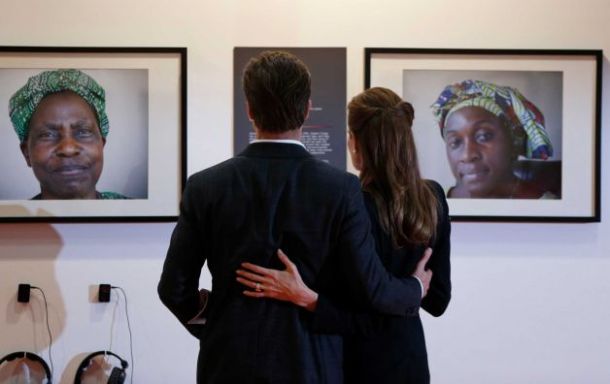The attention lavished on sexual violence in conflict last week was in many ways unprecedented. As well as convening the largest ever gathering of officials, NGOs and other experts for the Global Summit on Ending Sexual Violence in Conflict, co-chairs William Hague (Foreign Secretary of the United Kingdom of Great Britain and Northern Ireland) and Angelina Jolie (Special Envoy of the United Nations High Commissioner on Refugees) also generated very many pages – both print and digital – of commentary. In some myopic quarters, that achievement was in itself a distraction from the really important politics of blossoming conflict in Iraq. Such views should remind us that there are still those who insist on seeing gender violence as marginal to international peace and security. Worthy, yes, “no doubt important”, obviously a cause for concern, and so on, but naturally not the real deal.
Since the Summit’s close on Friday, there have also been criticisms of a different sort. A protest on the first day drew attention to the asylum and refugee policies of Her Majesty’s Government, and the ways in which survivors of sexual violence were being mistreated on the British mainland. The Foreign Office raised awareness in part through one-dimensional stories of crazy monsters in the hinterlands of barbarism. The “weapon of war” framework was ubiquitous, but no less problematic for that (see also). Although the Summit made space for youth delegates, UN entities, amateur hackers, foreign ministers, survivors, doctors, lawyers, celebrities, military officers and the odd NGO, academics (and our directly relevant research) were barely at the table. Some myths were therefore recycled. Delegates insisted on using rape survivors as props for their own journeys of self-discovery. I met a women in Panzi Hospital and what she told me broke my heart, etcetera. Some national representatives seemed only just to have discovered the existence of United Nations Security Council Resolution 1325, which urged the participation of women in military and political settings at all levels. That was, um, 14 years ago. John Kerry, amongst others, appeared to believe that rape in war was not yet illegal, but that we could make it so if we really put our minds to it.
The Fringe events were themselves a source of considerable disappointment. Angelina opened proceedings by assuring us that “our” institutions protected us from rape, and prosecuted it ably when it did occur, whilst “they” (we all know who) need our help because they are confined to refugee camps. There was a staged ‘trial’ of the afore-mentioned Resolution 1325, in which an all-white panel of lawyers and faux-judges, including Cherie Booth QC, took the testimony of African witnesses. You could buy various goods made by (or meant to help) rape survivors in the “bustling” Fringe marketplace, and the official programme recommended that you “treat yourself” by doing so. All of this (including the less appalling and more considered exhibits) seemed removed from the set piece debates upstairs. If the Foreign Secretary really did refuse to meet with four Nobel Laureates – some of whom are themselves survivors of political rape – then clearly civil society (that vague but essential category) was being neglected.
Those accumulated complaints can be dismissed as relatively trivial if the Summit gets even some way to achieving its stated aim of ending sexual violence in conflict.[1] Continue reading
